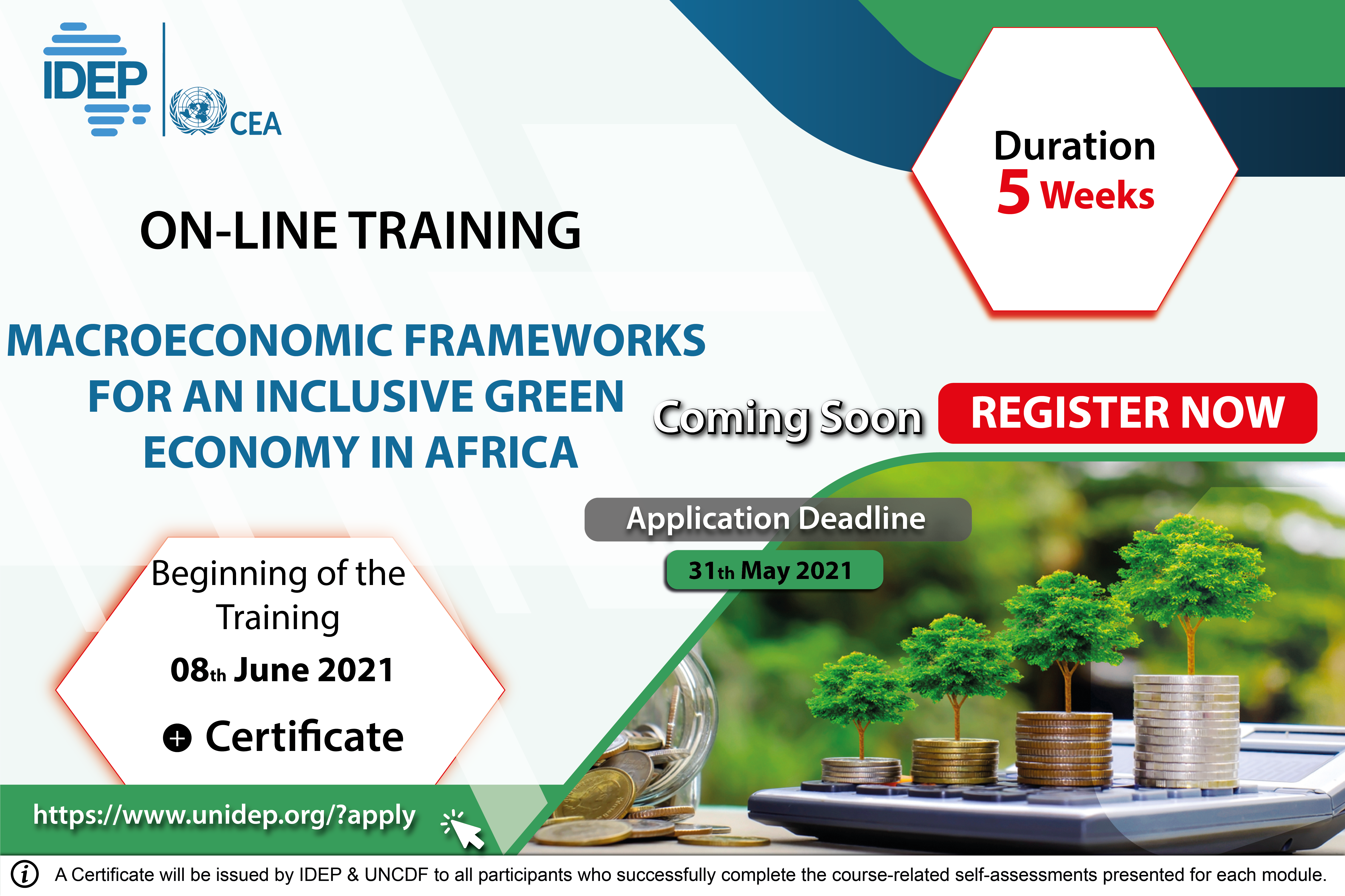Macroeconomic Frameworks for an Inclusive Green Economy in Africa
PROGRAM RATIONALE
The inherent features of an inclusive green economy (IGE) can influence the macroeconomic policies of a country to adequately cater to environmental and social policy objectives. Thus, the two are mutually reinforcing. To resolve trade-offs between stability and development objectives, macroeconomic policies should be integrated into a long-term development strategy embodying environmental objectives. This facilitates the transformation of economic and social structures, with a view to ensuring a positive feedback loop in the investment–growth nexus and to engendering inclusive green growth. At the same time, the integrated systems framework of an inclusive green economy promotes multi-sectoral approaches and policy coordination, and further helps to inform decisions and actions on policy formulation and implementation, as well as on monitoring and evaluation. This promotes policy consistency and coherence within the national development planning framework, and ultimately enhances the outcomes of a macroeconomic framework while catering to the three dimensions of sustainable development in a balanced manner.
Fiscal policy, being the main tool for raising public revenue and making public expenditure disbursements, is a relevant policy tool for mobilizing resources that can advance investments in the green economy. For example, green fiscal reforms contribute to revenues in addition to creating fiscal space that promotes public investments in the green economy and social expenditure that benefits the poor. Moreover, taxes on resource extraction discourage the unsustainable use of resources while also creating incentives for more sustainable resource use. Furthermore, productivity and employment can be enhanced through the allocation of capital and other fiscal resources to priority sectors with the greatest potential for green transformation, value addition, higher forward and backward linkages and job creation.
The conduct of monetary policy can also have a direct impact on a key constraint on the transition to a green economy – finance, through access to resources (via credit and a deepening of financial institutions). The right balance is needed to control inflation and money
supply while allowing space for green economy financing, taking into account that the inflation target should be appropriate to the development of a given country. Moreover, credit and financial services can play an instrumental role in allowing enterprises, including small and medium-size and informal enterprises, to acquire and accumulate resources to finance the transition. In particular, preferential credit to priority sectors with high-employment and high–investment multipliers, and also to natural resource-based sectors, could foster a green economy.
Thus, Macroeconomic reforms provide an enabling environment that is needed to encourage and stimulate behavioral change and the implementation of actions that promote sustainable production and consumption and facilitate the development of an inclusive green economy. A country’s macroeconomic policies provide an important framework to foster an inclusive green economy by providing an environment that influences the willingness and ability of economic actors to invest in green activities. Governments can provide an enabling environment, for example by providing financing options, removing environmentally harmful subsidies and creating appropriate demand conditions for green industries and supporting local green activities.
LEARNING OBJECTIVES
At the end of the course, participants will have a clear understanding of the following:
- The key concepts of inclusive green economy paradigm within macroeconomic frameworks;
- The overview and contemporary history of Africa’s macroeconomic policies;
- The implications of macroeconomic frameworks for development outcomes in Africa;
- Monetary policy and inclusive green economy;
- Fiscal policy and inclusive green economy;
- Challenges and opportunities in implementing macroeconomic policy reforms for inclusive green economy;
- Good practices and success factors in the implementation of macroeconomic policy reforms.
